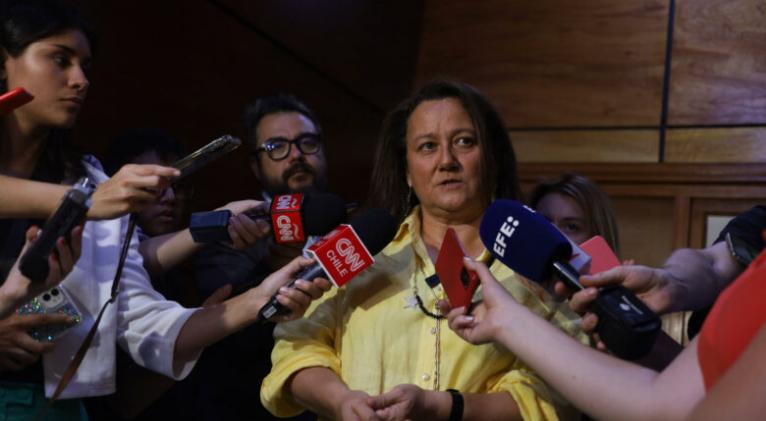Unveiling of report on Pablo Neruda’s death delayed due to technical problems
especiales

The presentation here of a preliminary report containing much-awaited conclusions about the 1973 death of Chilean Nobel literature laureate Pablo Neruda was delayed Friday due to technical problems.
Rodolfo Reyes, nephew of the acclaimed poet, told reporters at the Courts of Justice Palace in Santiago that some of the international experts involved in preparing the report were not in Chile and were unable to participate in Friday’s court hearing due to Internet difficulties.
“It’s shameful and it really upsets me, but we have to keep waiting,” he said. “There were a lot of expectations … everyone wants to know the truth about the death of Pablo Neruda,” who died just 12 days after the Sept. 11, 1973, military coup that toppled democratically elected leftist President Salvador Allende.
The investigation into his death began in 2011 after Chile’s Communist Party, of which the 1971 Nobel literature laureate and one-term senator was a longtime member, filed a complaint challenging the version of Gen. Augusto Pinochet’s 1973-1990 dictatorship, which listed metastatic prostate cancer and a related wasting syndrome known as cancer cachexia as the cause of his death.
That complaint was based on the testimony of Neruda’s driver, Manuel Araya, who said the poet was poisoned by the newly installed right-wing regime while undergoing cancer treatment at Santiago’s Santa Maria Clinic.
Araya was one of the last people to see Neruda alive along with the poet’s third wife, Matilde Urrutia, who “always said his (prostate cancer) was under control and that the urologist had given him around five years to live,” historian and journalist Mario Amoros told Efe recently.
The author of the biography “Neruda. El principe de los poetas” (Neruda: Prince of Poets), Amoros added that the Nobel literature laureate had planned to travel to Mexico a few days before his death at the age of 69 and that as an exile would have been Pinochet’s “great enemy.”
In his remarks to reporters on Friday, Neruda’s nephew also blamed Chile’s government for not investing the “necessary funds” to bring all of the international forensic experts to Santiago and complained that the presentation of the report has not yet been rescheduled.
“The minister (judge in charge of the case) needs to determine the date. I hope it’s soon,” Reyes added.
Judicial sources told Efe that a Chilean expert who lives in a city in southern Chile that has been affected by severe wildfires also was unable to connect via Internet on Friday.
This latest expert panel comprises forensic scientists from Canada, Denmark and the United States who either traveled to Santiago or have participated in the meetings virtually since Jan. 24.
They were expected Friday to reveal the origins of the “clostridium botulinum” bacterium found in one of the poet’s molars after his remains had been exhumed in 2017 at his home in Isla Negra, a coastal area 100 kilometers (60 miles) from Santiago.
An earlier group of international forensic experts who had reported that discovery also concluded that same year that Neruda did not die of prostate cancer, as is indicated on his death certificate.
“Clostridium botulinum” – which in low-oxygen conditions produces toxins that can cause botulism, a potentially fatal neurologic illness – is generally found in soil, dust and river or sea sediments.
The task of the current panel of experts therefore is to determine if the sample found in Neruda’s tooth had been altered in a laboratory and later injected into him by a third party.
“A quantity was found that is incompatible with life,” Reyes said.
David Hevia, president of the Chilean Writers’ Society, of which Neruda was a member, joined Reyes in criticizing Chilean governments for the delay in presenting the report.
“If we have a technical problem today, it’s because the Chilean government for years didn’t provide the necessary funding for international experts to work in the country,”














Add new comment